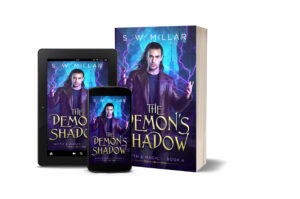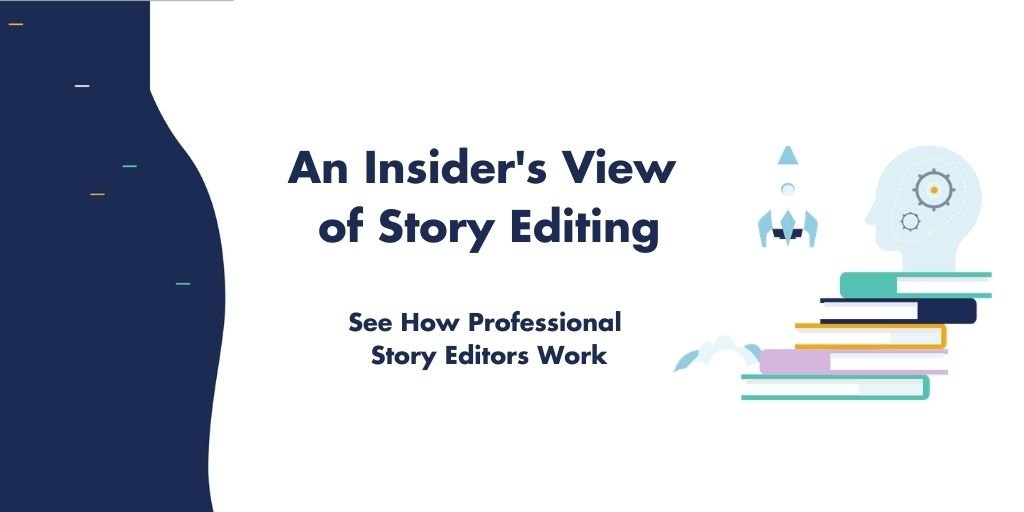Writing Humour: Let’s Get Serious About Being Funny
Let’s get one thing straight right out of the gate. Writing humour is hard, and there’s a lot of pressure to get it right.
Why?
Because if you get it wrong, readers will roll their eyes so hard they’ll get stuck in the back of their heads, and they’ll be crushed by the sheer avalanche of tumbleweed you drop on them.
Don’t worry though. Yes, writing humour might make you feel like a clown skipping through a minefield, but I’m here to help.

What is humour for?
Step away from the roulette and drop the martini there, 007, I here you cry. I write in a serious genre. Why would I need to know about writing humour?
That’s a great question!
Humour writing techniques are important. Doesn’t matter whether you’re writing:
- Horror
- Thriller
- Sci-fi
Or whatever “serious” genre tickles your writing pickle. Every genre has light-hearted moments, and even the darkest of genres (grim-dark fantasy, anyone?) has moments of comic relief.
And that’s what humour is for. Funny vignettes in fiction act as a pressure valve to relieve tense moments and give readers a break from long conflict sequences.
3 Ways You Can Incorporate Humour into Your Stories
Okay.
Now you know what humour is for, you’re probably wondering how you go about writing humour in a way that feels natural.
Here are 3 ways to do that.
#1: Writing humour to show Character
Humour is a great way to enhance characterisation. In everyday life, everyone says funny things, even if they’re not a natural comedian. The type of humour a character employees says a lot about them and their personality. Go through your cast of characters, and ask yourself, is this character:
- Snarky: do they use witty banter?
- Deadpan: do they deliver funny lines without inflection, keeping a straight face the entire time (this, much to my chagrin at times, is my default setting)?
- Sarcastic: do they wield humour as a weapon against others?
- Self-deprecating: Do they direct humour inward and make fun of themselves?
- Silly: Do they play the class clown, using overly expressive body language to be funny?
This list isn’t exhaustive, but you can see how writing humour in certain ways for different characters can say a lot about who they are.
#2: Writing humour to show genre
It’s true.
Some genres are funnier than others.
If you’re writing true comedy or satire, then the lion’s share of the tension and conflict will arise from comic misunderstandings and situations.
But what if you’re writing humorous asides in a thriller?
My tip here is a little goes a long way. In the thriller genre, a humorous line of dialogue at an awkward moment can help to provide a much-needed beat of comic relief, before returning to the story’s serious tone.
#3: Writing humour to vary pacing
I mentioned comic relief in the previous paragraph, but it deserves its own section, because writing humour well is a fantastic way to vary pacing.
Say you’re writing an action adventure novel and you’ve just taken your readers through 8 back-to-back fight scenes between your intrepid protagonist and your antagonist’s black-clothed minions…
You’re readers are going to be feeling the adrenaline rush of those scenes, and this could be the perfect place for a break in tension.
So, have someone tell an inappropriate joke, or say something unintentionally funny. These comedic moments between high-octane sequences can really help to hit the breaks and keep your pacing even.

Things to Avoid
Writing humour (in most genres) is like adding seasoning to a meal. Too little, and your book will be as bland and difficult to swallow as over-cooked porridge. Too much and your novel will be overwhelming (and farcical).
So, how can we avoid getting it wrong?
#1 Don’t be funny for the sake of it
If you’re writing humour, then do so strategically.
Want to build character using humour? Great! Go for your life. Need a spot for the reader to breathe and recover from a really tense moment. Awesome! Poke at some funny bones.
But…
Don’t be funny for no reason. A large part of why comedy works is down to timing. Use humour when it’s appropriate.
#2 Vulgarity is tricky
Does your character really need to fart in this scene?
In real life, farts are funny, right? In fiction… the jury’s out. I’m not saying you can’t stick a fart joke into your novel. I am saying this type of humour is notoriously hard to get right.
Some readers are instantly turned off by this, and if a poorly-timed fit of flatulence falls flat, you’ll never win them back.
#3 Cliches are always bad
Cliches in fiction are bad in general, but when you’re writing humour, this is especially true.
An example of a cliched comedic situation is:
The foolish husband who tries to hang a picture using his (somewhat dubious) DIY skills and ends up nailing his hand to the wall.
Yawn!
It’s been done.

3 Tips for Writing Humour
So if forced humour, farts (forced or otherwise), and cliches are to be avoided, how can you write humour in a way that works?
Try these three things.
#1: Use humour naturally in dialogue
Dialogue (the verbal exchanges between characters) is a fantastic place for humour.
If you have two sisters who regularly engage in a spot of sibling rivalry, it makes sense they would banter with each other, trying to get the upper hand.
Writing humour in dialogue can help show relationship dynamics.
#2 Let readers in on the joke
If you have the right type of point of view character, have them be self-deprecating. This will make them relatable to the reader.
Pro Tip: Beware of writing humour in such a way that your point of view character makes fun of your reader (often employed when characters “break the fourth wall,” or address readers directly). This can work (e.g., with unreliable narrators), but it’s risky and can offend readers.
#3: Put a fresh twist on an old cliche
While cliches and cliched phrases are a comedic no-no, twisted cliches can be fresh and original.
I used one in my fourth novel, The Demon’s Shadow.
One character asks another how long something will take. Had the other character replied with:
“How long is a piece of string?”
That would’ve been a yawn-inducing cliche.
Instead, the second character replied with:
“How long is a loop of intestine.”
A fresh twist on an old cliche.

Conclusion
Writing humour is not for the faint-hearted, but will a little practise, and a lot of writerly discretion, it can really add another layer of depth to your fiction.
Article written by Shane Millar

Shane Millar is a Fictionary Certified Story Coach and the author of the Write Better Fiction craft guides. He is also the author of the Myth & Magic and Chosen Vampire urban fantasy thriller series.
Shane holds a BA in journalism and is a member of The Alliance of Independent Authors (ALLi). He lives in Buckinghamshire, England.
He has taken too many writing courses to count and enjoys reading as much as possible. Shane is obsessed with five things: the writing craft, mythology, personal development, food, and martial arts movies.
Want to hire Shane to edit your novel? Visit: https://swmillar.com/editing
When do you ever get to see what a story editor delivers to a client if the client is not you?
If you’re thinking of becoming a story editor, this course is for you. Our course gives you an insider’s view of what happens in a story edit. This is similar to a structural or substantive edit for fiction.
Before you hire an editor or edit your own story, it’s important to understand what a story edit is.
Thirteen professional editors edited the same novel.
Each editor worked separately in Fictionary StoryCoach.
This course evaluates their edits and shows you what worked and what didn’t. We’ll show you two scenes before editing and after revisions based on the editors’ suggestions. We even compare the editors’ summary letters and per scene notes.
For writers looking to hire a professional story editor, this course shows you what you should receive from a story editor. It will also show you how an editor might look at your story.’
Sign up now for great value.
On sale for $39 USD. Use Coupon INSIDERSVIEW
Regular Price: $99.


